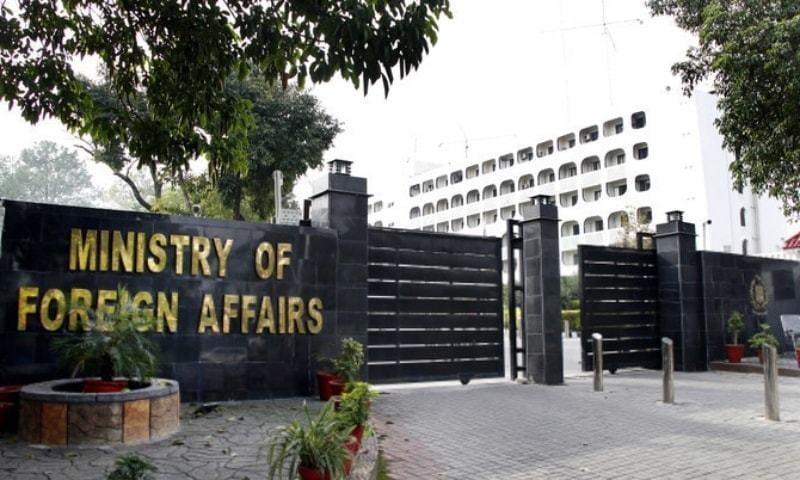No decision has yet been made to eliminate bilateral agreements with India, the Ministry of Pakistan Foreign Affairs said on Thursday – One day after the Minister of Defense, Khawaja Asif, said that the 1972 Simla agreement between the two hostile neighbors was a “dead” document.
Answering questions from the media, a senior official of the Ministry of Foreign Affairs said that if India’s recent actions and declarations had caused internal discussions, Pakistan had made no official or conclusive decision to cancel one of its bilateral agreements with New Delhi.
“Currently, there is no official decision to terminate a bilateral agreement,” said the official, indicating that the existing bilateral agreements, including the SIMLA agreement, remain in force.
Learn more: Asif declares the Simla agreement a “dead document”
Clarification one day came after the Minister of Defense, Khawaja Asif, during an interview with a private television channel, said that the Simla agreement had lost its relevance and its validity due to the recent unilateral actions of India.
“The Simla agreement is now a dead document. We are back to the 1948 post, when the United Nations declared the line of control of a ceasefire line after the ceasefire and resolutions,” said AIF. He argued that the bilateral framework agreed in 1972 had collapsed and that future conflicts should be treated through multilateral or international channels.
Referring to the first Indo-Pak war and the cease-fire of the resulting non-mediated, the minister said that the stages of India-in particular the revocation of article 370 in Jammu-et-Cachemire in 2019-had undermined the foundations of bilateral engagement.
He also called into question the current state of the other key agreements, saying: “Whether the Treaty of the Indus water is suspended or not, Simla is already over.”
In a sharp warning, the Minister of Defense commented on the broader security situation, saying that the threat of conflict with India was still there. “Pakistan does not want war, but if it is imposed on us, our answer will be even stronger than before,” he warned.
Learn more: Simla Agreement 1972: Key points and exit implications
The Simla agreement, signed in 1972 in the aftermath of the 1971 Indo-Pak war, committed the two countries to solve their disputes by peaceful and bilateral means. The agreement converted the ceasefire line to Jammu-et-Cachemire into the control line (LOC) and forced the two parties to refrain from the threat or the use of force, while respecting the sovereignty and territorial integrity of the other.
Khawaja Asif’s remarks came into the context of the recent announcement of New Delhi to unilaterally suspend the Industry Water Treaty (IWT), followed by not caused strikes within Pakistani territory last month – developments that triggered increased military tensions between the two nuclear armed neighbors.
In the wake of India’s decision, the Pakistani authorities reported a sharp drop of 91,000 brackets in India water flows in the Chenab river, because Indian Prime Minister Narendra Modi continued to publish bellicist statements, suggesting water use as a strategic weapon against Pakistan.
A few days after announcing the suspension of the treaty, Prime Minister Modi said that the water that was previously flowing towards Pakistan would now be preserved for domestic use, affirming that Pakistan would no longer receive water from the rivers on which India claims rights.




